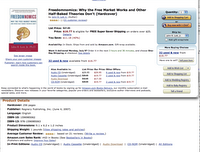New Piece in National Review
One has an effect on the other, but it may not be the effect you think.
Violent crime in the United States shot up like a rocket after 1960. From 1960 to 1991, reported violent crime increased by an incredible 372 percent. This disturbing trend was seen across the country, with robbery peaking in 1991 and rape and aggravated assault following in 1992. But then something unexpected happened: Between 1991 and 2000, rates of violent crime and property crime fell sharply, dropping by 33 percent and 30 percent, respectively. Murder rates were stable up to 1991, but then plunged by a steep 44 percent.
Several plausible explanations have been advanced for the drop during the 1990s. Some stress law-enforcement measures, such as higher arrest and conviction rates, longer prison sentences, “broken windows” police strategies, and the death penalty. Others emphasize right-to-carry laws for concealed handguns, a strong economy, or the waning of the crack-cocaine epidemic.
Of all the explanations, perhaps the most controversial is the one that attributes lower crime rates in the ’90s to Roe v. Wade, the Supreme Court’s 1973 decision to mandate legalized abortion. . . . . .
This piece requires a subscription, though it is largely based on the discussion that I have on this issue in my book, Freedomnomics.
By the way, in the same issue Ramesh Ponnuru has a useful discussion on the gun control debate, though I believe that he is a little too optimistic.
Labels: Abortion, Article, Economics, Freedomnomics







